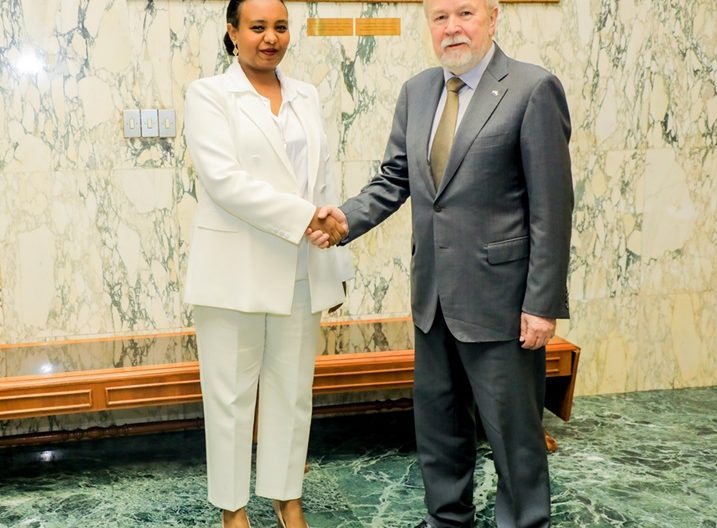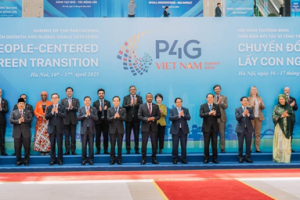
Addressing global environmental issues, such as pollution, biodiversity loss, and climate change, requires states to collaborate on environmental protection programs. Implementing international environmental agreements and treaties is crucial, especially the Paris Agreement, which allows countries to control global warming and reduce greenhouse gas emissions.
International collaboration on climate mitigation is essential to effectively tackle the global challenge of climate change. Countries often form bilateral or multilateral agreements to address specific climate challenges, such as renewable energy collaboration, technology transfer, or coordinated research activities.
Cooperation is also beneficial for technology transfer and innovation. Cooperation in developing and transferring clean technology is crucial for reducing emissions. Programs like the Climate Technological Centre and Network (CTCN) promote technological cooperation between industrialized and developing countries.
Establishing systems for climate financing requires essential agreements and cooperation. Financial assistance is crucial for climate mitigation initiatives, especially in underdeveloped nations. Programs like the Green Climate Fund (GCF) provide funding to help nations implement climate projects and transition to low-carbon economies.
State partnerships in climate change mitigation can also lead to capacity building. States can collaborate on initiatives to help governments, corporations, and communities adopt successful climate policies and practices. Creating alliances on climate change and environmental concerns is critical for carbon marketing, as collaboration in carbon markets allows states to sell emissions allowances.
To prevent environmental pollution, collaborative research is crucial. Cooperative research projects have the potential to provide breakthroughs in environmental practices, energy efficiency, and renewable energy. Collaboration facilitates cross-border resource and knowledge-sharing tasks.
Ongoing education is necessary for environmental protection and climate change mitigation. States can collaborate to raise public awareness and education about climate change issues, encouraging sustainable behaviors at the community level.
Achieving global climate targets requires states to work together on climate mitigation. By cooperating through regional initiatives, international agreements, technology sharing, financial support, and capacity building, states can strengthen their efforts to reduce greenhouse gas emissions and transition to a sustainable future. Substantial cooperation at all societal and governmental levels is required due to the urgency of climate change.
Ethiopia has actively participated in regional and global climate change partnerships and projects. Through its Nationally Determined Contributions (NDCs), Ethiopia has committed to meeting aggressive climate goals as a party to the Paris Agreement. The government aims to be carbon neutral by 2025, a significant commitment for a developing country.
To address climate change issues in the Horn of Africa, Ethiopia collaborates with neighboring countries through the Intergovernmental Authority on Development (IGAD). Ethiopia also works with other nations in the Nile Basin to manage water resources responsibly and address concerns about climate change’s impact on water availability and agriculture.
Ethiopia has bilateral agreements with developed and developing nations to receive financial and technical assistance for climate adaptation and mitigation initiatives, including climate-aligned renewable energy projects.
Ethiopia’s efforts to combat climate change demonstrate its commitment to sustainable development and resilience building. By promoting economic growth, enhancing individuals’ well-being, and engaging in international agreements, regional cooperation, bilateral partnerships, and community participation, Ethiopia aims to reduce the effects of climate change.
The Ethio-Russia Cooperation on Environmental Protection Initiatives is a prime example of collaboration between nations to protect the environment. Through technology transfer, experience sharing, and cooperative projects, both countries work together to address environmental issues and strengthen their capacity for environmental management.
Both Ethiopia and Russia participate in global environmental protection organizations and forums, such as the United Nations Framework Convention on Climate Change (UNFCCC), to strengthen their positions on environmental concerns.
Collaboration in environmental protection helps both nations achieve sustainable development goals and address urgent global issues like biodiversity loss and climate change. Strengthening ties in environmental protection can lead to a sustainable future for both countries.
The recent conversation between the Russian Ambassador to Ethiopia and the Director General of the Ethiopian Environmental Protection Authority highlighted the importance of increasing collaboration in technology transfer, ecosystem protection, waste management, pollution control, training programs, and experience exchange.
Both countries emphasized the significance of connecting with relevant public agencies, the commercial sector, and research institutes to enhance evidence-based collaboration.
International collaboration is crucial for designing and implementing adaptation plans to combat climate change and protect the environment. States must be dedicated, open, and willing to share expertise and resources to achieve a more sustainable future and address global environmental challenges.
The Ethio-Russian collaboration and commitment to implementing environmental agreements serve as a positive example for other nations. By working together, Ethiopia can enhance its resilience to climate impacts and promote sustainable development.
BY EPHREM ANDARGACHEW
The Ethiopian Herald December 8/2024





